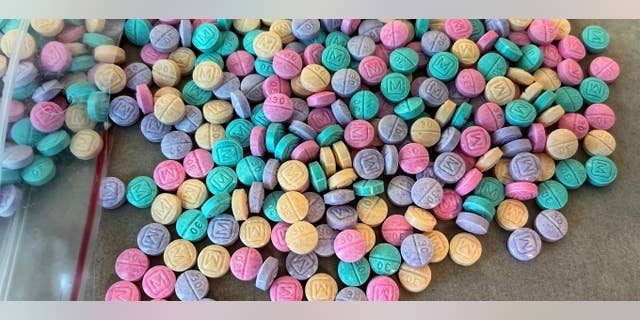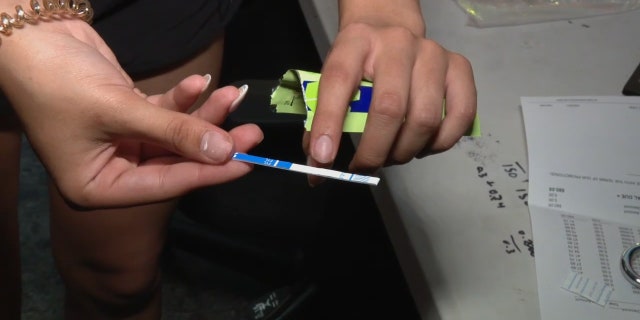Liam O’Brien is a former fentanyl addict. He found his dealer on Craig’s List. The first time he used fentanyl he nearly overdosed and vowed not to do it again.
“Normally, when you get high, there are periods of time when you’re in and out of consciousness,” O’Brien explained. “But when you fall out, you’re teetering on the borderline of overdosing. With fentanyl, I blinked. And when I opened my eyes, five hours had passed, and I felt my breathing restart.”
“It scared me. And I told myself, ‘OK, I don’t want to use this anymore.’ And then, the next day, when I woke up, I already paid $100, so I’ll just finish the rest of it. And that’s how it started.”
After smoking fentanyl powder a second time, O’Brien was hooked.
FENTANYL AND A STRONGER FORM OF METH NOW DRIVING AMERICAN HOMELESS CRISIS
An estimated 150 people die every day from synthetic opioid-related overdose deaths.
(University of Houston)
“It’s immense relaxation, relief,” he said. “You’re warm, you’re comfortable. Whatever you have going on in your life, you don’t really worry about it anymore. You’re completely content.”
Like many teens, O’Brien began experimenting with drugs at high school parties — marijuana followed by prescription pills. By age 19, he tried heroin and transitioned to fentanyl at 21.
“When you’re addicted, consequences don’t matter,” he said. “I fully knew at a point that I was going to die, but I needed to get high. So I chased it regardless.
“Once you take the drugs, you don’t get to choose what happens next. You think you have it under control. You’re young, you feel invincible. You feel like it’s your choice. But these drugs will sink their claws into you. And very quickly, before you realize it, it’ll change into something that is completely out of control.”

Rainbow fentanyl
(Drug Enforcement Administration)
O’Brien worked as a machinist full time, but every penny he earned went to buy drugs or gas to buy drugs. He tried getting clean on his own but failed.
What does withdrawal feel like?
“You feel like you’re going to die, but you don’t. It’s like having a full body flu and your bones are aching, and you get hot, you get cold, you’re sweating, you’re constipated, you’re all sorts of things, but you just have to sit through it and endure.”
LAW ENFORCEMENT AGENCIES ACROSS THE COUNTRY MADE SEVERAL RECORD-SETTING FENTANYL BUSTS IN 2022
O’Brien went back to using. But with his mother’s help, he entered a five-day detox at a treatment center followed by 18 months of structured living at the Clearview-New Life sober living house in Los Angeles.
“Folks believe human beings are like cars, that you can just drive through a car wash,” says Howard Barker of Clearview. “But that’s not how it works.”
Barker says prevention begins with family members being interested, diligent, open and observant with their teen.
“When you have a loved one that’s struggling, and you suspect that they’re hurting, get them help,” he says. “Don’t wait for the overdose. Don’t wait for the incarceration. Don’t wait for the felony. Don’t wait for the DUI.”

Fentanyl test strips are considered drug paraphernalia in many states.
(FNC)
Treatment programs lasting 30 to 60 days are not enough, Barker said. You may get off drugs and separate from some bad influences, but it’s not enough time to change habits and understand the underlying behavioral problems that put you there in the first place.
CLICK HERE TO GET THE FOX NEWS APP
“Thirty. Sixty. Ninety days. You sit, watch TV, drink Kool-Aid and eat cafeteria food,” O’Brien said of traditional rehab. “When insurance is up, you’re out.
“Here, it is not just about getting off of drugs. It’s about learning how to live and learning how to be all right with yourself so that you don’t need to think of outside things.”